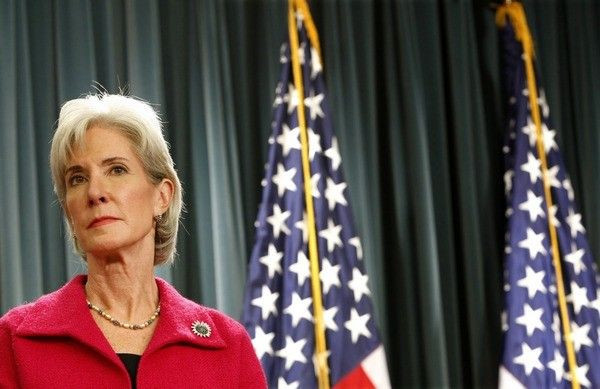Unemployed Equals No Health Insurance, Americans Look to Health Care Act for Hope

About 9.1 percent of Americans are unemployed, according to the most recent statistics from the Bureau of Labor Statistics.
Nearly three-quarters of those jobless Americans say they can't afford needed health care or prescription drugs, and about half say they're struggling with medical bills, new research shows.
It's clear from this report that losing a job and health insurance simultaneously is a serious threat to a family's health and financial stability, Commonwealth Fund President Karen Davis said in a statement.
In November, the Centers for Disease Control and Prevention reported that nearly 59 million Americans went without health insurance coverage for at least part of 2010.
The federal subsidy that allows the unemployed to continue to receive coverage from their former employer's health insurance plan is set to end on Sept. 1.
Federal health officials said four million more Americans went without health insurance in 2010 compared to 2008.
In the survey, U.S. News and World Report noted that researchers analyzed data from respondents who lost their health insurance when they lost their jobs:
- 72 percent said they couldn't afford to: fill a prescription; get a recommended test, treatment or follow-up; go to a doctor or clinic for a medical problem, or get specialist care.
- 72 percent said they had problems with medical bills, including: an inability to pay; having to make payments over time to clear up medical debt; being contacted by collections agencies over unpaid bills; and changing their way of life to pay medical bills.
- 40 percent said medical bills forced them into difficult financial tradeoffs in the past year, such as: 32 percent had used up all their savings; 27 percent couldn't pay for basic necessities such as food, heat or rent; 14 percent accumulated credit card debt; and 9 percent took out a home loan.
On the other hand, 60 percent of working Americans rely on employer-based health insurance, so when 15 million working-age adults lost their jobs between 2008 and 2010, an estimated nine million also lost their health insurance, according to the 2010 Commonwealth Fund Biennial Health Insurance Survey.
Researchers concluded that when the major provisions of the Obama Administration's health care act are implemented in 2014, newly unemployed people will have many more health insurance choices, but the current lack of options have led to a health and financial crisis for many Americans.
In 2014, Medicaid will be expanded to cover single adults earning up to $14,484 a year and families of four making up to $29,726 a year, according to federal health officials.
The Consolidated Omnibus Budget Reconciliation Act of 1985, known as COBRA, allows laid-off workers to keep their former employer's health insurance as long as they pay for it themselves.
COBRA without the subsidy is pretty expensive, Antoinette Kraus, the project manager for the Pennsylvania Health Access Network, a coalition of 55 organizations that advocates for affordable quality healthcare, told the Pittsburgh Post-Gazette.
The average monthly cost of maintaining COBRA coverage without the subsidy is about $1,137 for a family policy and $410 for an individual, according to calculations from The Kaiser Family Foundation.
In 2009, the federal government provided a subsidy for COBRA that reduced the cost for the unemployed by 65 percent.
© Copyright IBTimes 2024. All rights reserved.





















